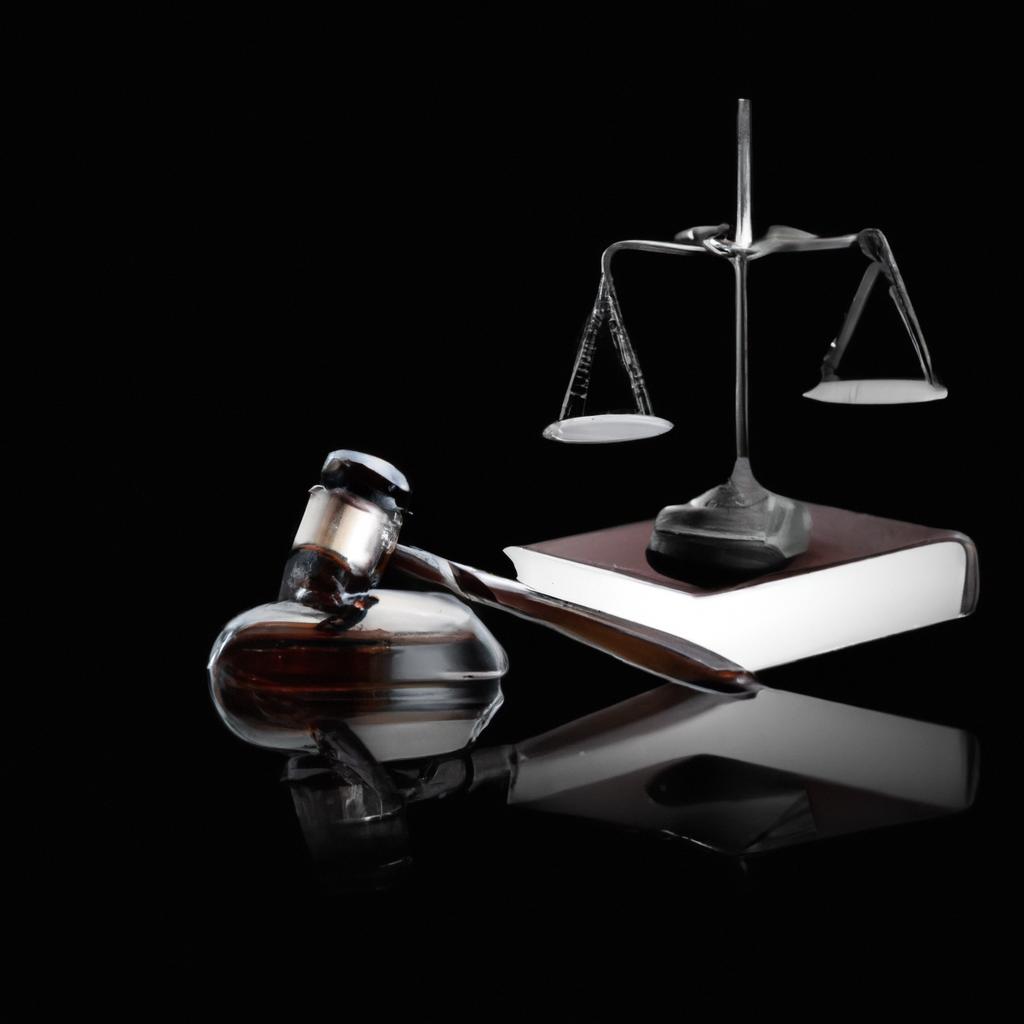In the realm of estate planning and administration, few documents hold as much weight and significance as the “to the estate of” letter. Crafted with meticulous attention to detail and legal precision, these letters serve as crucial instruments in the transfer of assets and property upon the passing of an individual. At Morgan Legal Group in New York City, we specialize in navigating the complexities of estate law, including the drafting and execution of such letters to ensure the seamless distribution of our clients’ legacies. Join us as we delve into the intricacies of the “to the estate of” letter and explore its invaluable role in the realm of estate planning.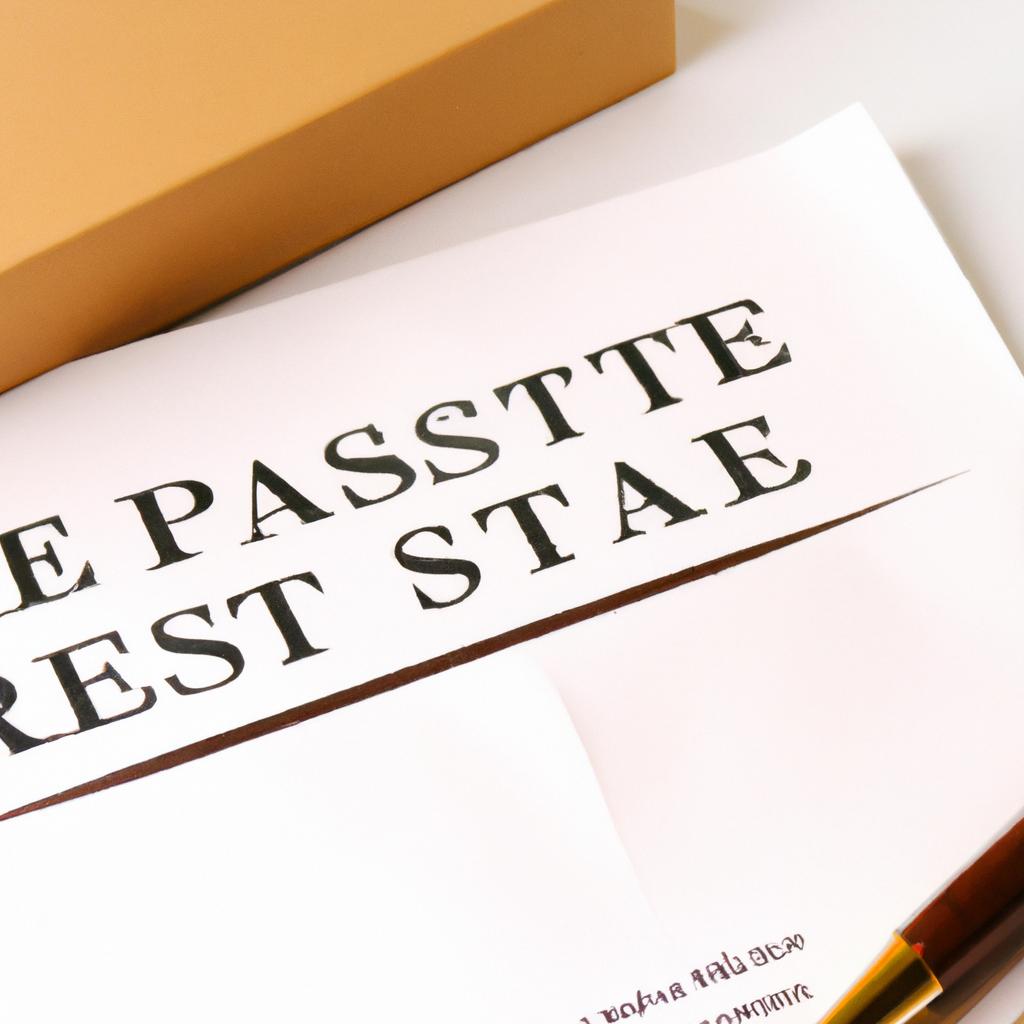
Understanding the Purpose of a Letter to the Estate
When writing a letter to the estate, it is important to understand the purpose behind such correspondence. A letter to the estate serves as a formal notification to the executor or administrator of an estate regarding a specific matter related to the deceased individual’s assets or affairs. This could range from requesting information about the estate, providing notice of a legal claim, or communicating a decision regarding inheritance.
One key purpose of a letter to the estate is to ensure clear and effective communication between all parties involved in the probate process. By putting information in writing and sending it to the appropriate individual, you can document important details, requests, or decisions related to the estate. This helps to prevent misunderstandings, disputes, or delays that may arise if communication is solely verbal. Additionally, a letter to the estate can serve as a record of your intentions or actions, which may be important for legal purposes in the future.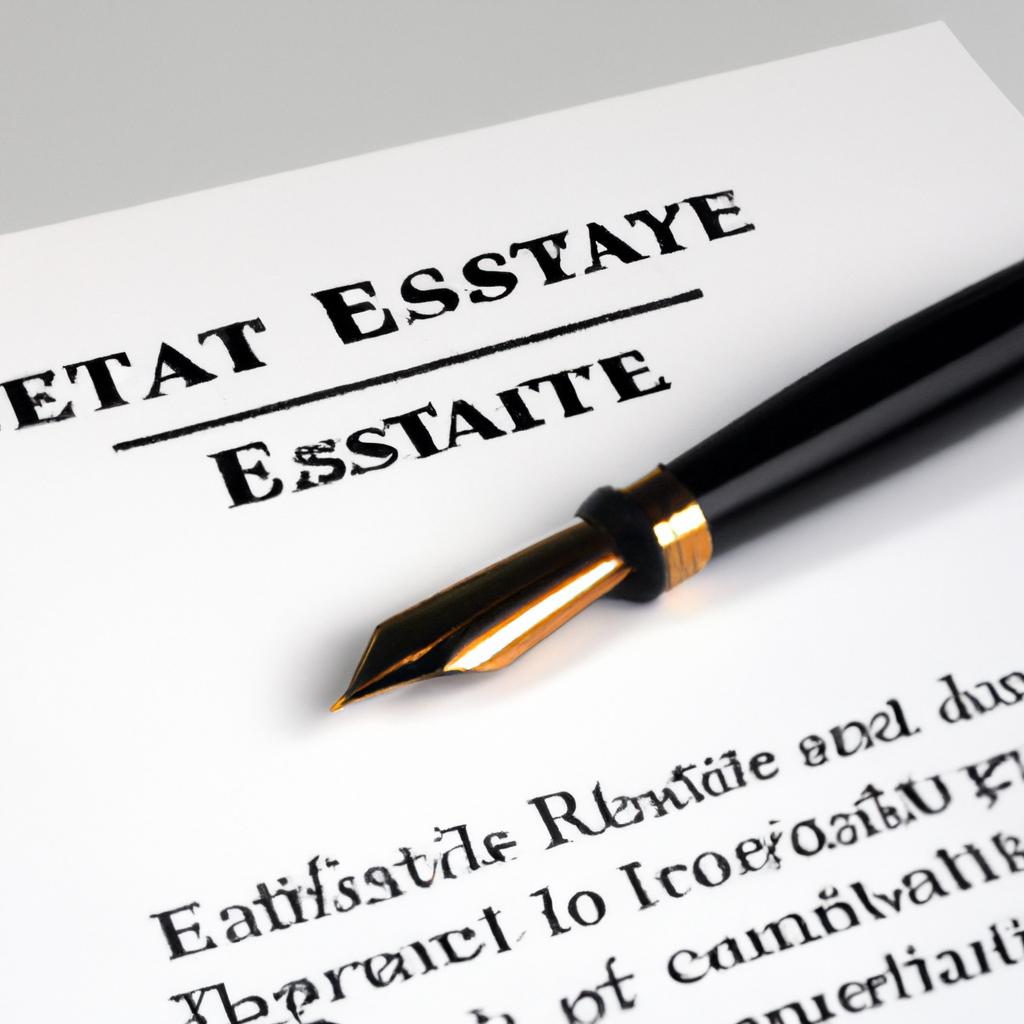
Key Considerations When Drafting a Letter to the Estate
When drafting a letter to the estate, it is essential to consider several key factors to ensure clarity and professionalism in your communication. Firstly, be sure to address the letter to the appropriate party or parties involved in the estate, such as the executor, beneficiaries, or legal representatives. This will help avoid any confusion or miscommunication regarding the purpose of the letter.
Secondly, clearly outline the purpose of the letter and provide relevant information in a concise and organized manner. Be sure to include all necessary details, such as the decedent’s name, date of death, a brief overview of the estate’s assets and liabilities, and any specific instructions or requests. Additionally, consider the tone and language used in the letter, ensuring it is respectful, courteous, and free of any emotional or biased language. By following these key considerations, you can effectively draft a letter to the estate that is informative and professional.
| Key Considerations | Action Item |
|---|---|
| Address the letter to the appropriate party | Identify executor, beneficiaries, or legal representatives |
| Clearly outline the purpose of the letter | Include decedent’s information, estate assets and liabilities |
| Watch your tone and language | Be respectful, courteous, and unbiased |
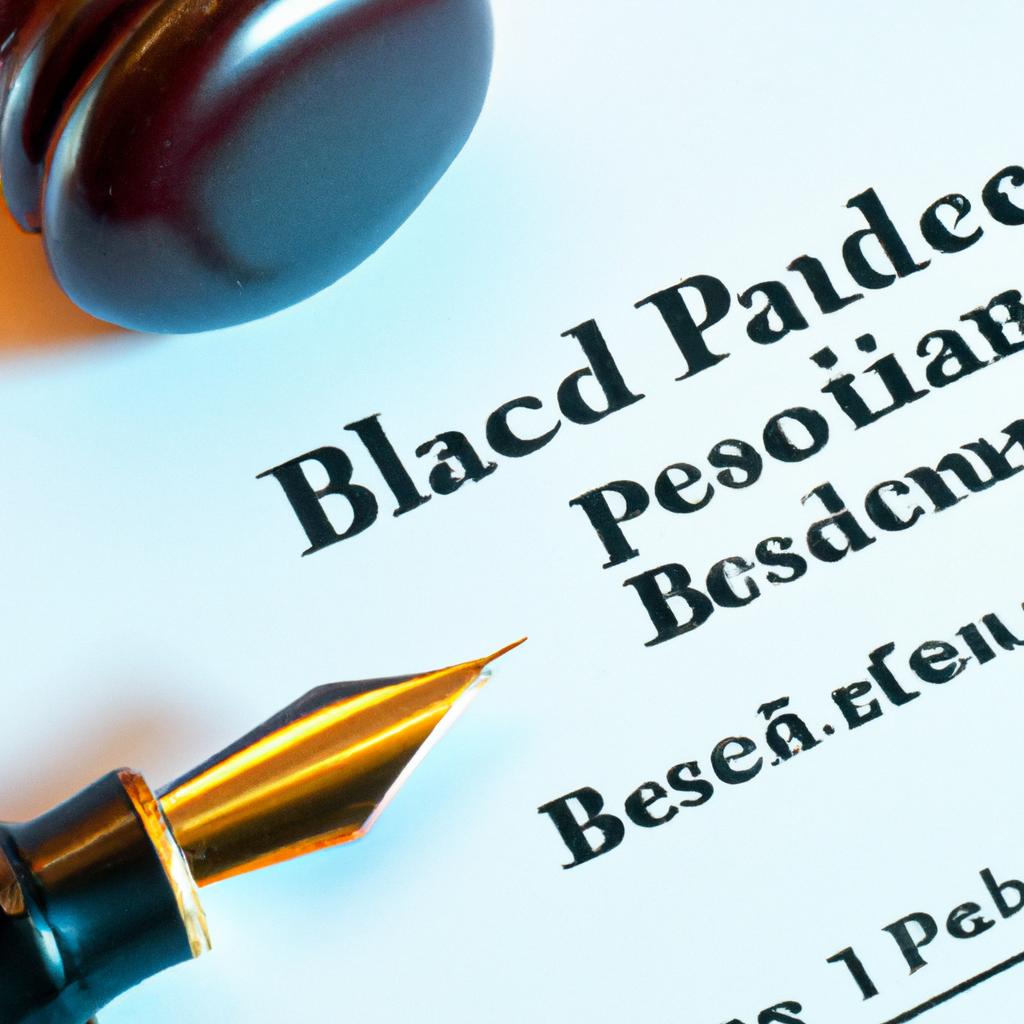
Best Practices for Addressing Legal Matters in a Letter to the Estate
When addressing legal matters in a letter to the estate, it is crucial to adhere to best practices to ensure clarity, professionalism, and compliance with legal requirements.
Some key best practices to consider include:
- Clearly Identify the Parties: Begin the letter by clearly identifying the sender and recipient, using full names and any relevant titles or positions.
- Provide a Detailed Explanation: Clearly explain the purpose of the letter, the legal matter at hand, and any relevant background information to ensure understanding.
- Be Concise and to the Point: Avoid unnecessary legal jargon or overly complex language, keeping the content of the letter clear and straightforward.
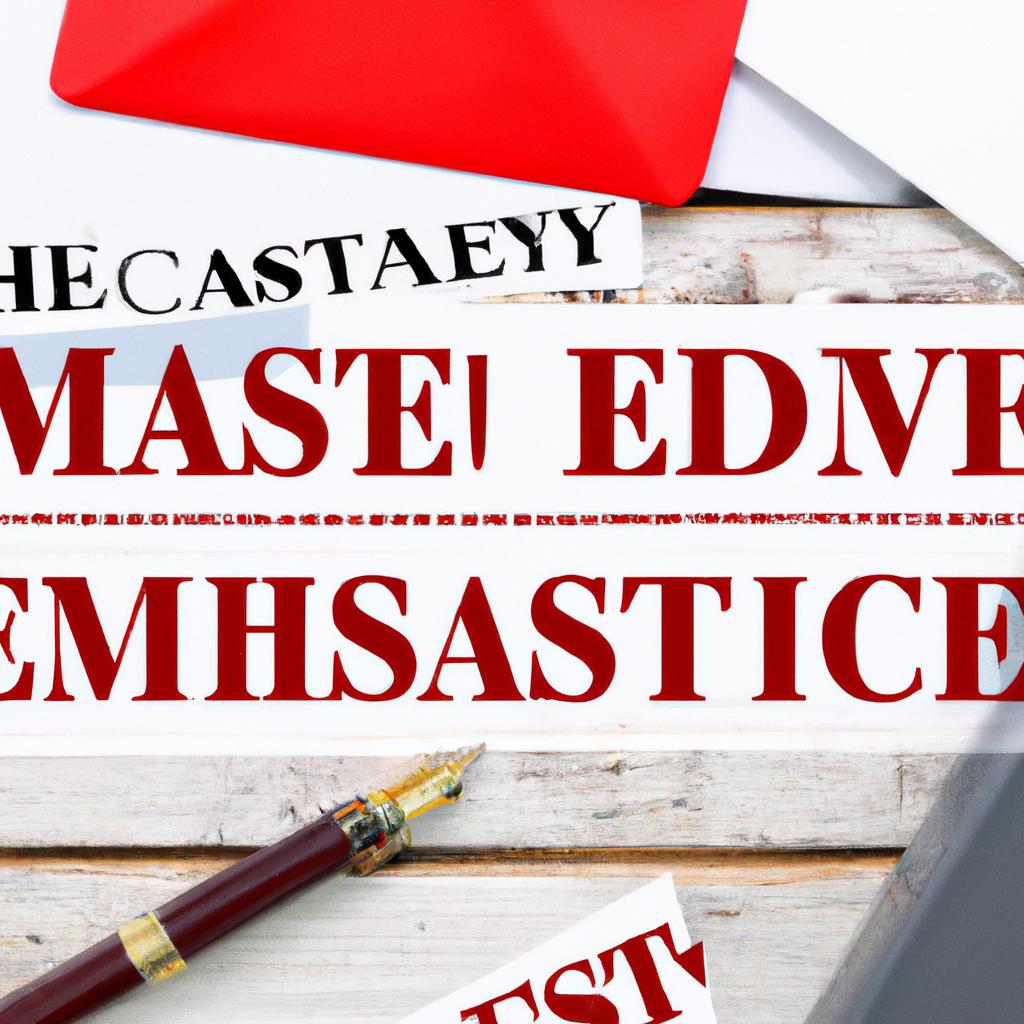
Common Mistakes to Avoid in Correspondence to the Estate
One common mistake to avoid in correspondence to the estate is failing to address the letter to the correct individual or entity. It is crucial to ensure that the letter is directed to the appropriate executor or personal representative of the estate to avoid delay or confusion in the handling of the estate matters.
Additionally, another mistake to avoid is using ambiguous language or vague terminology in the correspondence. It is essential to be clear and concise in your communication to the estate, providing all necessary details and information in a straightforward manner. Ambiguity can lead to misunderstandings and potentially complicate the administration of the estate. Remember, clarity and precision in your correspondence are key to effective estate communication.
Q&A
Q: What is a “to the estate of letter”?
A: A “to the estate of letter” is a formal letter addressing a deceased person and discussing matters related to their estate.
Q: Who typically sends a “to the estate of letter”?
A: These letters are typically sent by individuals or organizations who have a legal or financial interest in the estate of the deceased person.
Q: What information should be included in a “to the estate of letter”?
A: A “to the estate of letter” should include details about the deceased person’s estate, any relevant legal documents, information about the sender’s relationship to the deceased, and any specific requests or instructions.
Q: Why are “to the estate of letters” important?
A: “To the estate of letters” help to notify interested parties about the status of the deceased person’s estate, clarify legal responsibilities, and facilitate the distribution of assets according to the deceased person’s wishes.
Q: How should recipients of a “to the estate of letter” respond?
A: Recipients of a “to the estate of letter” should carefully review the contents of the letter, seek legal advice if necessary, and respond promptly and appropriately to any requests or instructions outlined in the letter.
Future Outlook
In conclusion, the art of writing a “to the estate of” letter is a delicate and thoughtful process. It requires a balance of respect, clarity, and sincerity in order to properly address the loss of a loved one. By following the guidelines outlined in this article, you can be sure to convey your condolences in a meaningful and comforting way. Remember, the words you choose have the power to provide solace and support during a difficult time. So take the time to craft a heartfelt message that truly honors the memory of the deceased. Our thoughts are with you as you navigate this journey of grief and remembrance.
 Title: The Importance of Writing a Letter to the Estate and How to Do It Right
Title: The Importance of Writing a Letter to the Estate and How to Do It Right
Meta title: The Ultimate Guide to Writing a Letter to the Estate
Meta description: Discover the value of writing a letter to the estate and learn practical tips for crafting a comprehensive and impactful message to your loved ones.
In today’s fast-paced world, digital communication has become the norm for staying in touch with friends and family. While it may be more convenient and efficient, there is still something special about receiving a handwritten letter. It shows that someone took the time to sit down and put their thoughts and feelings into words, making it a meaningful and heartfelt gesture. This is especially true when it comes to writing a letter to the estate of a loved one.
A letter to the estate is a document that outlines the wishes and desires of the deceased individual regarding their assets, property, and funeral arrangements. It is a crucial piece of information that helps the executor of the estate and the family members understand and carry out the deceased’s last wishes. In this article, we will delve into the importance of writing a letter to the estate and provide practical tips for creating a well-crafted and effective message.
Why Should You Write a Letter to the Estate?
1. Express Your Last Wishes
Writing a letter to the estate gives you the opportunity to express your final wishes and desires. It allows you to communicate your thoughts and feelings about how you want your assets and belongings to be divided and distributed among your loved ones. This is especially important for those who may have specific requests or sentimental items that they want to pass down to certain individuals.
2. Avoid Conflict and Confusion
Without a written letter to the estate, there is a higher chance of conflict and confusion among family members. In the absence of clear instructions, disputes may arise over who gets what, leading to strains in relationships. By clearly outlining your wishes in a letter to the estate, you can minimize the risk of disagreements and ensure a smooth and fair distribution of your assets.
3. Saves Time and Money
Having a letter to the estate can also save your family time and money. Without clear instructions, your loved ones may have to go through the legal process of determining how your assets will be divided, which can be time-consuming and costly. By providing a detailed letter, you save them from the burden of making these decisions and potentially help them avoid legal fees.
How to Write a Letter to the Estate?
1. Start with an Introduction
Begin your letter by addressing the recipients and explaining why you are writing to them. This could be a brief explanation of your relationship with them or the purpose of the letter. This will help set the tone for the rest of the letter and ensure that the recipients understand its importance.
2. State Your Intentions Clearly
In the body of the letter, clearly state your intentions and what you want to be done with your assets and belongings. Avoid using vague language and be as specific as possible. This will help avoid any confusion or misinterpretation of your wishes.
3. List Your Assets and Beneficiaries
Next, create a list of your assets, including real estate, investments, insurance policies, and sentimental items. For each asset, specify who you want to inherit it and any specific instructions you may have. If certain items have already been promised to someone, make a note of it to avoid any discrepancies.
4. Name an Executor
In your letter, it is essential to name an executor of your estate. This is the person who will be responsible for carrying out your wishes and handling any legal matters. Make sure to choose someone who is trustworthy and capable of handling this responsibility.
5. Include Funeral Arrangements
In addition to asset distribution, you may also want to include your wishes for your funeral arrangements in your letter. This can include your preference for burial or cremation, the location of your funeral, and any specific requests you may have.
6. Review and Update Regularly
Once you have written your letter to the estate, it is crucial to review and update it regularly. As life changes, your wishes may change as well. Make sure to keep your letter up to date and communicate any changes to your family members and executor.
Conclusion
Writing a letter to the estate is a thoughtful and considerate gesture that can save your loved ones from unnecessary stress and conflict. By clearly stating your wishes and intentions, you can ensure that your assets are distributed according to your wishes and minimize the burden on your family during a difficult time. Remember to review and update your letter regularly, and keep it in a safe and easily accessible place. Leave a legacy and make your final wishes known by writing a letter to the estate.

